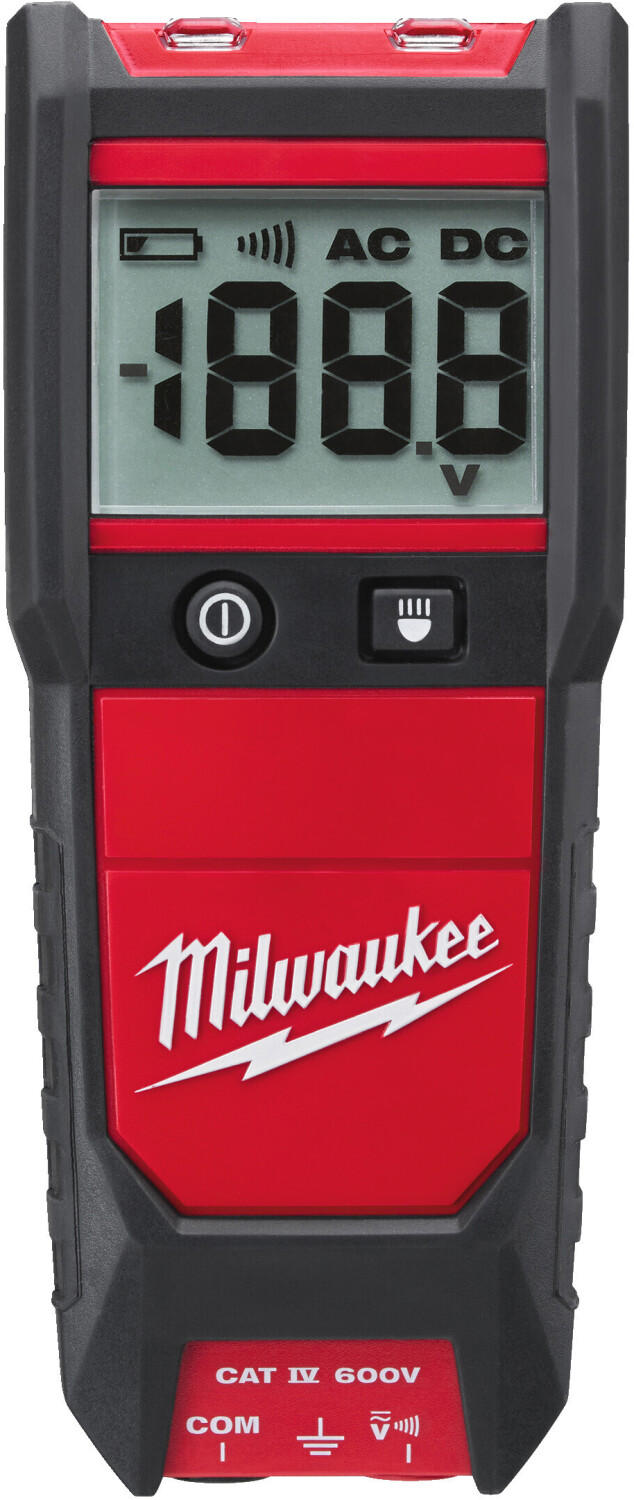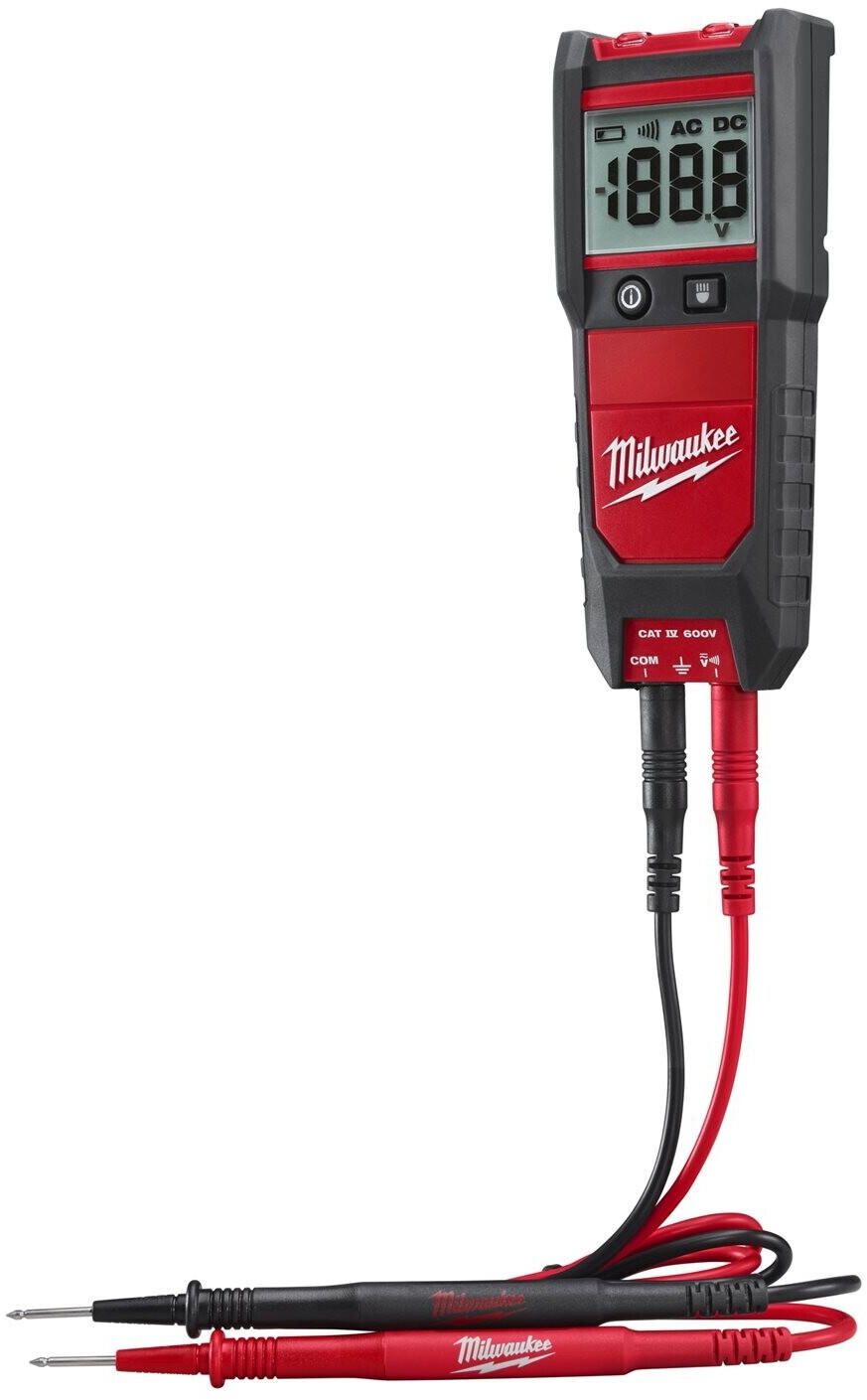Power Tool Batteries Guide
Battery capacity
The capacity of the battery refers to the amount of charge it can hold, typically measured in ampere-hours (Ah). The higher the capacity, the longer the battery will last before needing to be recharged. For example, the DEWALT DCB207 features a capacity of 1.3Ah, allowing for extended runtime on tools such as drills and screwdrivers. On the other hand, the Makita BL1850B offers a larger capacity of 5.0Ah, providing even longer usage before recharging, making it suitable for heavy-duty power tools like circular saws and angle grinders. Keep in mind that different power tool battery brands offer various capacity options, so ensure to check the product specifications for the desired capacity needs.
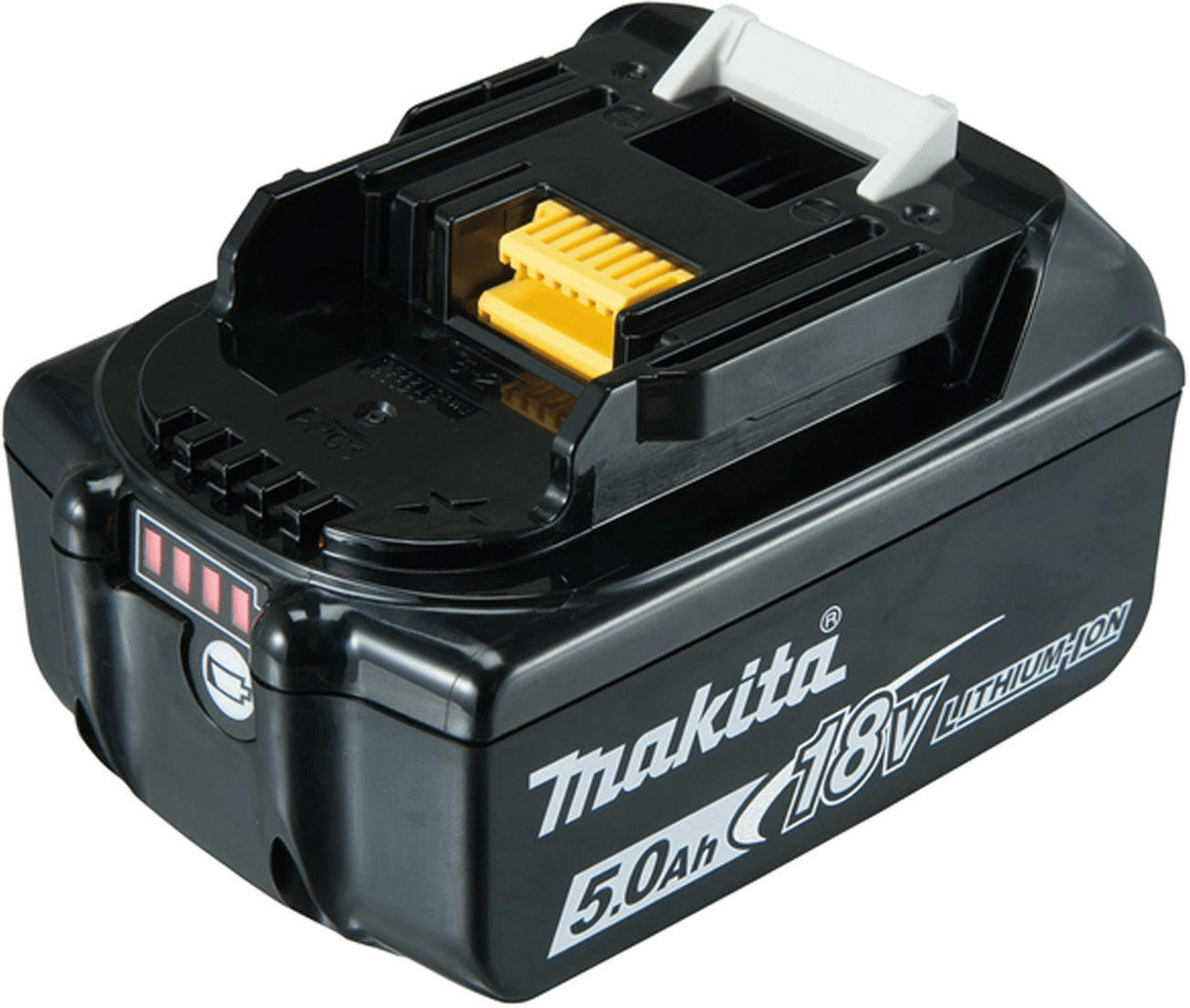
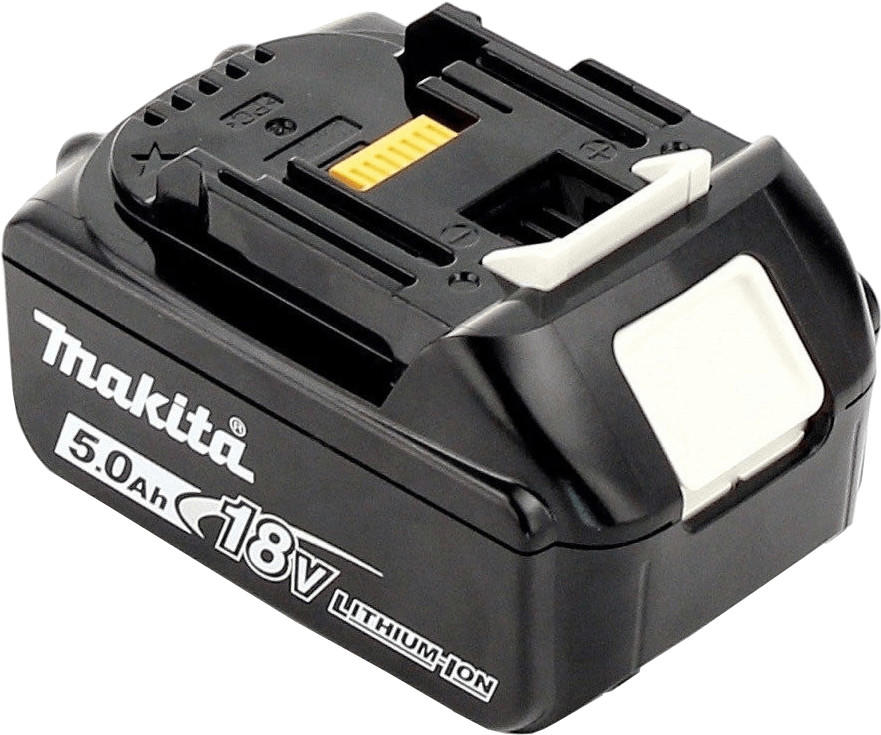
Voltage
Voltage, measured in volts (V), determines the power and performance of the battery. Higher voltage batteries generally provide more power and can handle tougher tasks. For example, the DEWALT DCB205-2 20V MAX XR Lithium-Ion batteries offer a voltage of 20V, making them suitable for high-demand power tools such as drills and saws. On the other hand, the BLACK+DECKER LBXR20 20V Max Lithium-Ion battery provides a similar voltage, making it an ideal choice for various DIY tools and cordless garden equipment. Remember that the voltage of the battery needs to match the specific power tool requirements for optimal performance.
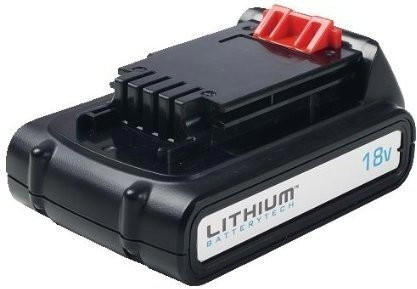
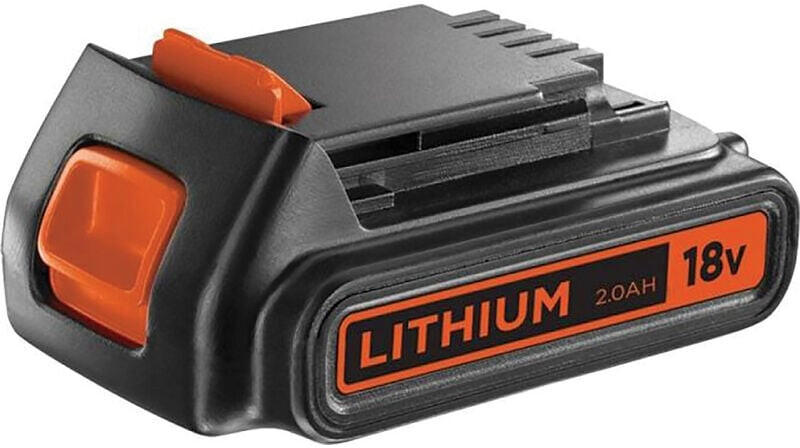
Ampere-hour (Ah) rating
This rating indicates the amount of power the battery can deliver over a given period of time. Generally, the higher the Ah rating, the longer the battery will last before needing to be recharged.
In the market, power tool batteries can be divided into different groups based on their Ah rating. In the 12V segment, the DEWALT DCB122 offers an Ah rating of 2.0, providing ample power for light to medium-duty tasks. Moving up to the 18V segment, the Bosch BAT620-2PK features a higher Ah rating of 4.0, ensuring longer runtime and increased versatility for more demanding jobs. For heavy-duty applications in the 20V+ range, the Makita BL1840B-2 stands out with a large Ah rating of 4.0, delivering significant power and extended runtime.
It is worth noting that manufacturers often provide additional technical specifications for battery performance, such as voltage and watt-hour (Wh) ratings. These specifications can further complement the understanding of the battery's capabilities but are not the primary focus in this particular guide.
Compatibility with power tools
It's essential to find batteries that are compatible with your tools in terms of voltage, ampere-hour (Ah) rating, and battery chemistry. The voltage must match the requirement of your power tools, such as 18V or 20V. Make sure to check the Ah rating, which represents the battery's capacity for storing and delivering power. For instance, the DeWalt DCB240 is a compatible 20V Max 4Ah lithium-ion battery suitable for DeWalt power tools, while the Makita BL1850B is a 18V 5Ah lithium-ion battery specifically designed for Makita tools. Keep in mind that some battery types, such as nickel-cadmium (NiCd), nickel-metal-hydride (NiMH), and lithium-ion (Li-ion), may not be interchangeable, so ensure they are compatible with your power tools.


Battery type (lithium-ion, nickel-cadmium)
The two most common battery types for power tools are lithium-ion and nickel-cadmium.
Lithium-ion batteries are known for their higher energy density and lighter weight compared to nickel-cadmium batteries. They also have a longer lifespan and can hold a charge for a longer period of time. An example of a lithium-ion battery for power tools is the '`Makita 18V LXT Lithium-Ion Compact Cordless 2-Pc. The lithium-ion battery in this set has a high capacity of 2.0Ah, allowing for longer runtime and less frequent recharges.
On the other hand, nickel-cadmium batteries are known for being more durable and performing better in extreme temperatures. They also have a lower self-discharge rate when compared to lithium-ion batteries. A popular nickel-cadmium battery for power tools is the '`Porter-Cable PC18B 18-Volt NiCd Cordless Battery Pack'. It offers a high output voltage of 18 volts, providing ample power for various tools.
These two types of batteries cater to different needs and preferences. Lithium-ion batteries are ideal for those who value a lightweight and longer runtime, while nickel-cadmium batteries are better suited for those who prioritize durability and performance in extreme conditions.
Battery life
It determines how long the battery can hold its charge and how many hours of continuous use you can expect from it. When searching for power tool batteries with a long battery life, the CRAFTSMAN V20 and DEWALT 20V MAX XR batteries are excellent options. The CRAFTSMAN V20 delivers a runtime of up to 1.5 times longer than standard lithium-ion batteries, allowing for extended use during projects. On the other hand, the DEWALT 20V MAX XR batteries provide an impressive runtime of up to 33% more power than standard 20V MAX batteries, ensuring prolonged productivity without constantly needing recharges. These batteries make a practical choice for those seeking extended battery life for their power tools.
Charging time
The charging time determines the downtime between charges, allowing you to have uninterrupted work at your project site. Some power tool batteries in the market offer impressive charging times, such as the DEWALT DCB206-2 20V MAX XR Lithium-Ion Premium 6.0Ah Battery which can fully charge in just 60 minutes. Another example is the Makita BL1860B-2 18V LXT Lithium-Ion 5.0Ah Battery, which takes only 45 minutes to charge completely. If you need even faster charging, the Milwaukee 48-11-1852 M18 REDLITHIUM XC5.0 Battery Pack provides a remarkable 80% charge within just 49 minutes, ideal for those who value minimal downtime.
Weight
Lighter batteries are more comfortable to handle, reduce fatigue, and allow for better control during use. For those who prioritize weight, there are several options available on the market today.
In the group of lightweight power tool batteries, one standout product is the DEWALT DCB206-2 XR POWER DETECT Lithium-Ion Battery Pack. Weighing in at just 1.42 pounds, this 20V battery offers the advantage of reduced weight without compromising on performance. Another option to consider is the Makita BL1850B-2 18V LXT Lithium-Ion Battery. With a weight of only 1.28 pounds, this battery provides ample power while minimizing the strain on the user.
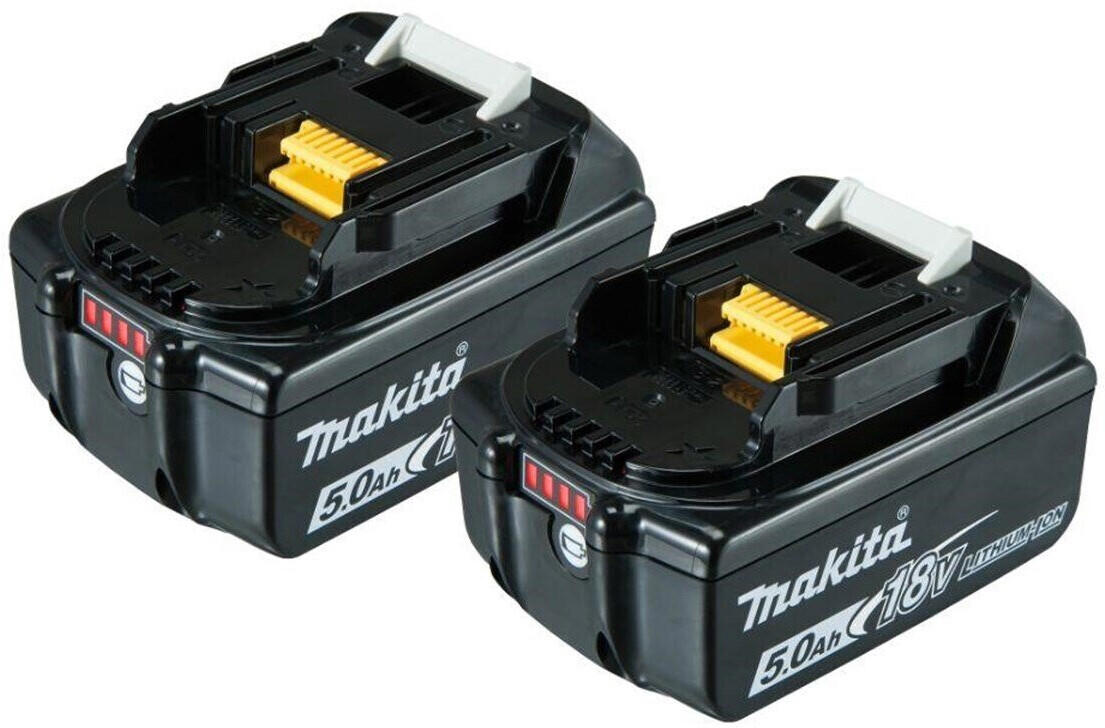
It's worth noting that battery weight can vary significantly between different power tool brands and models. As such, when comparing options, be sure to check the specifications and product details for the weight information. By considering weight alongside other factors, you can find the ideal power tool battery that meets your specific needs and preferences.
Size and dimensions
The size of the battery will determine its compatibility with your power tools. Many power tools require specific battery sizes, so it is crucial to ensure that the battery you choose fits properly in your tool.
For example, if you are looking for a compact and lightweight battery, the DEWALT DCB203 20V MAX Compact XR Lithium-Ion Battery is a great option. It measures only 3.9 x 7.4 x 8.8 inches and weighs just 1.21 pounds, making it ideal for handheld power tools such as drills and impact drivers. On the other hand, if you require a larger battery with extended run time, the Makita BL1860B 18V LXT Lithium-Ion High Capacity Battery would be a suitable choice. It has dimensions of 6.7 x 4.9 x 3.9 inches and weighs 1.5 pounds, providing extended runtime for power-hungry tools like circular saws and angle grinders. Keep in mind that each power tool manufacturer may have their own specific battery sizes, so always check the compatibility of the battery with your specific tool.
Charging indicator
This feature allows users to easily monitor the battery's charging status and ensure it is ready for use. Some batteries, such as the DeWalt DCB606, come equipped with a built-in LED fuel gauge that displays the remaining battery life. This feature allows users to plan their tasks accordingly, preventing any interruptions due to sudden power loss. Other batteries, such as the Makita BL1850B-2, boast an integrated charge level indicator with four indicator lights, providing a clear visual indication of the battery's charge level. This helps users track the battery's charging progress and estimate the time it will take to reach a full charge. Overall, the charging indicator serves as a practical tool for efficient work planning and battery management.

Overcharge protection
Overcharging can lead to reduced battery life or even damage to the tool and the battery itself. To avoid this, look for batteries with built-in overcharge protection circuits that automatically stop charging when the battery reaches its optimum level. For example, the Dewalt DCB206-2 20V MAX XR Lithium-Ion Premium Battery features Overload Protection which prevents battery damage caused by overcharging. Another option is the Bosch CORE18V 6.3 Ah Lithium-Ion Battery, which has CoolPack technology that provides overcharge protection along with efficient heat dissipation.
Segmenting the power tool battery market, batteries typically fall into three groups – Standard, High-Performance, and Extended Runtime. In the Standard category, the Makita BL1830B-2 18V LXT Lithium-Ion 3.0Ah Battery is a popular choice with overcharge protection. For High-Performance batteries, the Milwaukee 48-11-1865 M18 REDLITHIUM XC 6.0Ah Battery excels in providing maximum power output and also incorporates overcharge protection. Lastly, for batteries focused on extended runtime, the Ryobi P191 18V 3.0Ah High Capacity Lithium-Ion Battery combines a larger capacity with overcharge protection, allowing for extended use without compromising battery life or performance.
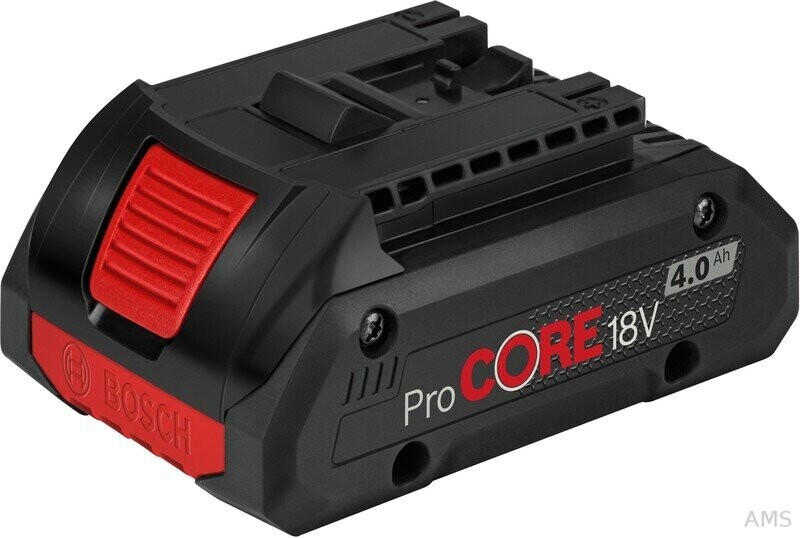
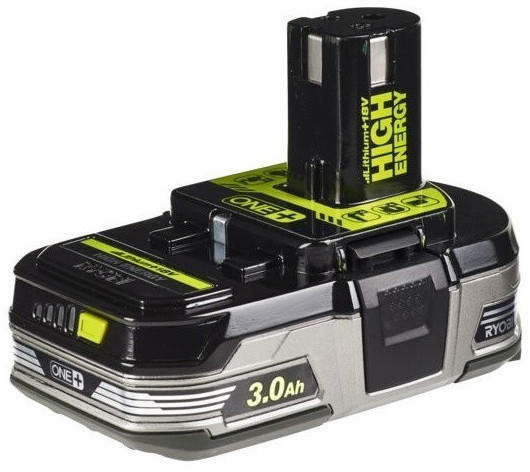
Temperature protection
This is especially crucial for users who work in extreme weather conditions or require their tools to function at a wide range of temperatures. Look for batteries that come with built-in temperature sensors and protection systems, as they can prevent overheating and extend the lifespan of your battery. The DEWALT DCB612 20V MAX/FLEXVOLT 12.0Ah Battery is one example that offers temperature protection, with a built-in state of charge indicator and up to 12.0Ah of power. Another option is the RYOBI 18V ONE+ 4.0 Ah Compact LITHIUM+ Battery, which features an Extreme Weather Performance that allows it to operate in temperatures as low as -4°F (-20°C) and as high as 140°F (60°C).
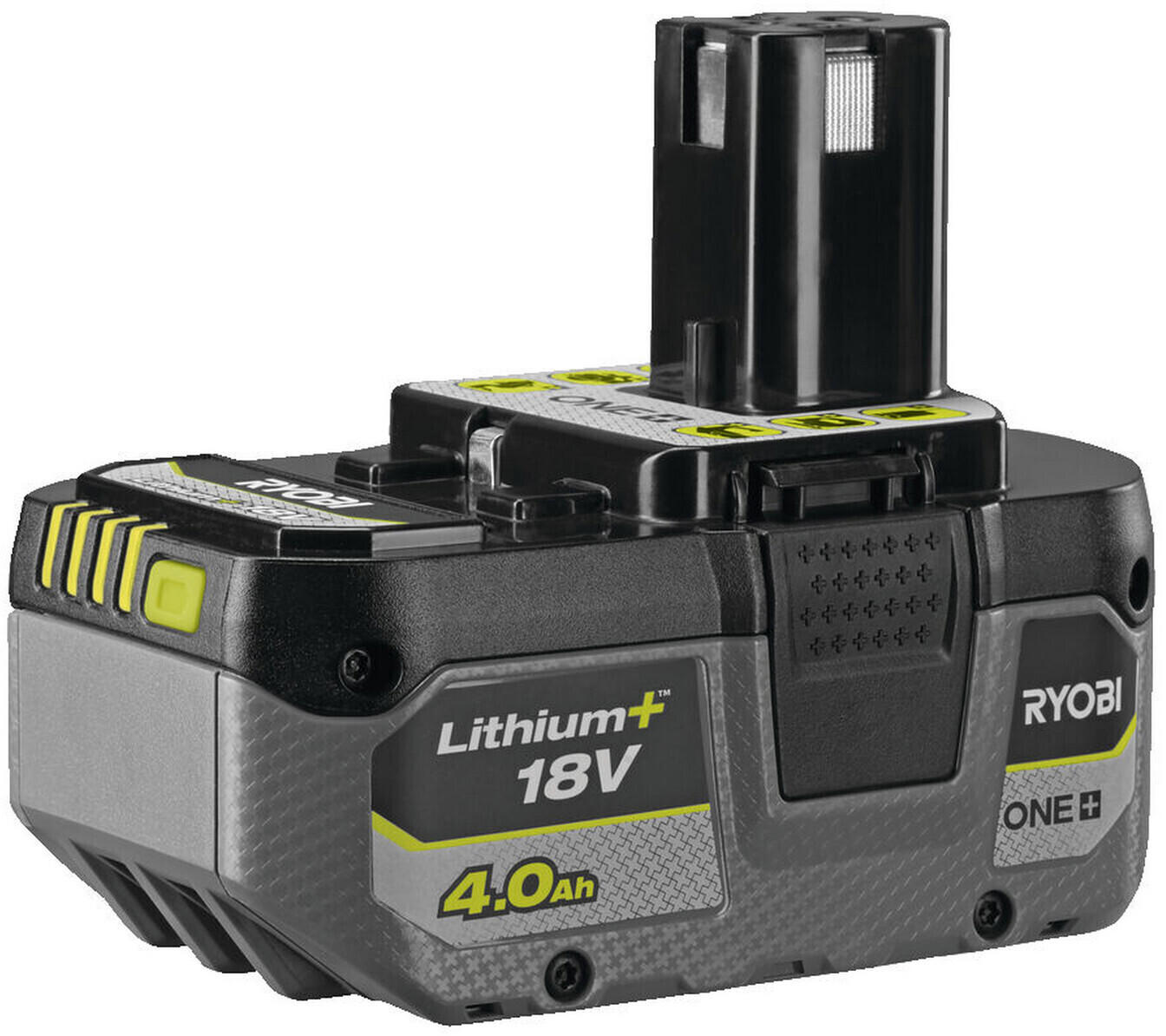
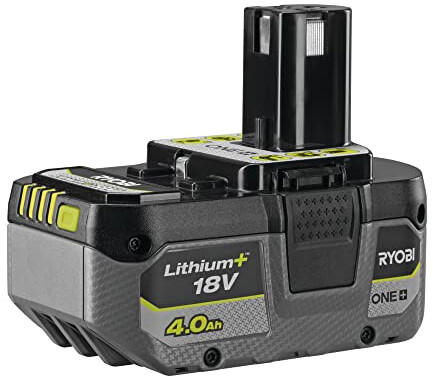
Memory effect (lack of)
Memory effect refers to the loss of battery capacity when a rechargeable battery is repeatedly charged without being fully discharged. This issue, common in older battery technologies, does not occur with newer lithium-ion batteries. For those looking for power tool batteries with memory effect, Milwaukee M18 Redlithium High Output HD12.0 Battery Pack is an excellent choice. This battery pack utilizes advanced lithium-ion cell technology with no memory effect, ensuring consistent performance. It offers a substantial 12.0Ah capacity, allowing for longer tool run time and less frequent recharging. Similarly, the DeWalt FlexVolt DCB609-2 battery pack is also an ideal option. It boasts a high 9.0Ah capacity, eliminating memory effect concerns and providing extended tool operation. These batteries deliver consistent power output and can be used interchangeably with various power tools within their respective brands.
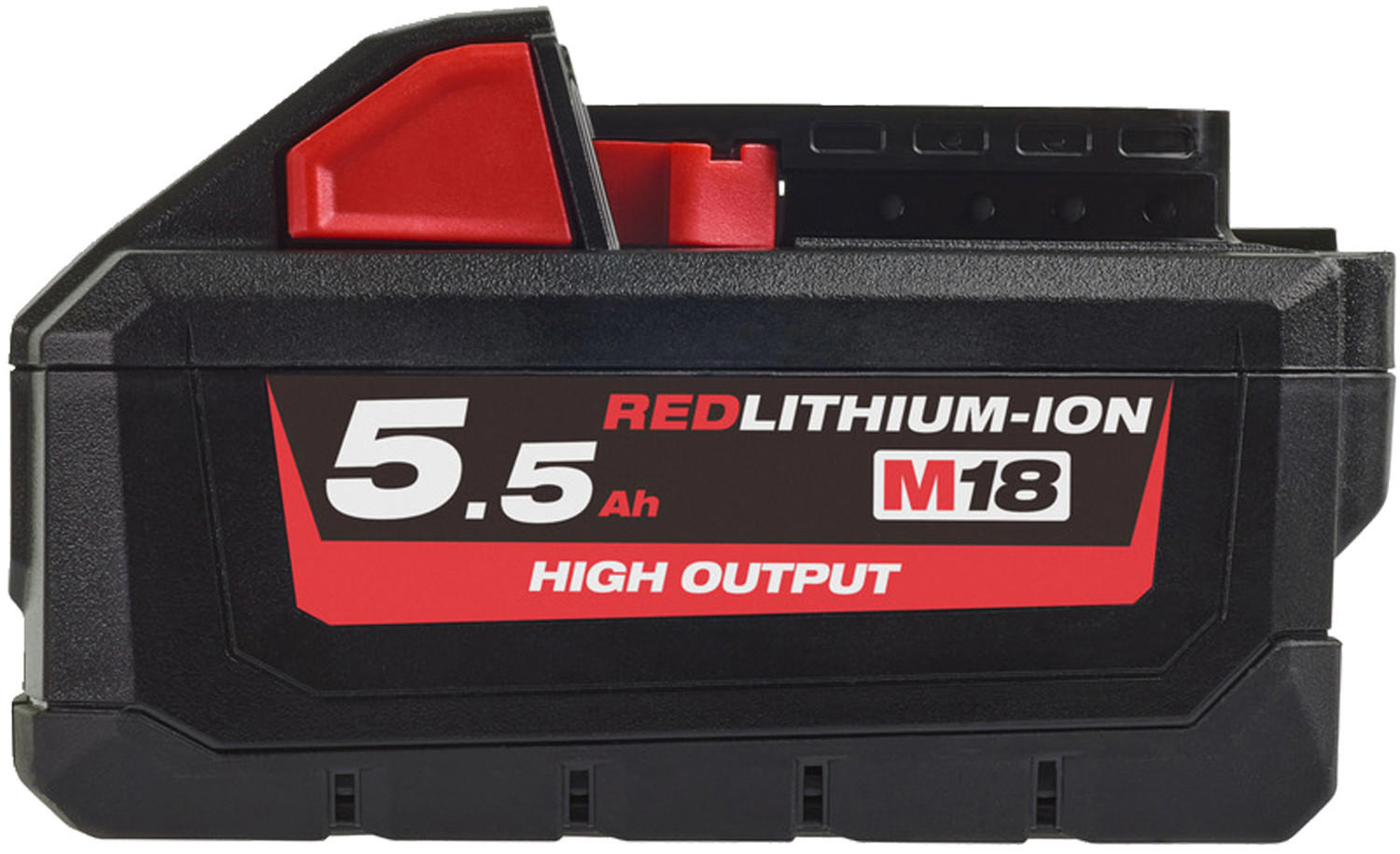

Long-term performance
This refers to the battery's ability to provide consistent power over extended periods of usage without compromising performance. One product that stands out for its long-term performance is the DEWALT DCB205 20V MAX XR Lithium-Ion Battery. With a high-capacity of 5.0Ah, this battery offers increased runtime and a longer battery life. It also features a 3-LED fuel gauge system that provides immediate feedback on the remaining charge level, thus enabling users to plan their work accordingly. Another excellent choice is the Milwaukee 48-11-1852 M18 REDLITHIUM XC5.0 Extended Capacity Battery. This battery utilizes advanced technology to deliver fade-free power and maintain consistent performance even in extreme temperatures. Additionally, its high-capacity of 5.0Ah ensures longer runtimes, minimizing downtime for recharging.
Durability
It is important to look for batteries that are built to withstand regular use and are highly resistant to factors such as shocks, vibrations, and extreme weather conditions. One example of a durable power tool battery is the DEWALT DCB205-2 20V Max XR Lithium-Ion Battery Pack. This battery is made with a durable casing that enables it to withstand tough job site conditions. It is also equipped with an LED fuel gauge that allows users to easily monitor the battery's charge level. Another option to consider is the Makita BL1830B-2 18V LXT Lithium-Ion 3.0Ah Battery Twin Pack. These batteries are designed with shock-absorbing features and a reinforced housing to ensure durability, making them suitable for long-lasting use in demanding environments.
Shelf life
Shelf life refers to the duration for which the battery can retain its charge when it is not in use. It is important to note that different batteries have varying shelf lives, and this can greatly impact their usability and convenience.
For instance, if you are in need of a reliable power tool battery with a long shelf life, the DEWALT DCB206-2 20V MAX XR Lithium-Ion Battery is an excellent choice. With a nominal voltage of 20 volts and a high-capacity configuration, it offers a shelf life of up to 3 years. Another notable option is the Makita BL1850B-2 18V LXT Lithium-Ion 5.0Ah Battery. This battery features an advanced charging system, which optimizes battery life and ensures a low self-discharge rate for a prolonged shelf life. Whether you go for the DEWALT or Makita batteries, their impressive shelf lives provide peace of mind in terms of long-term storage and usability.


Heat dissipation
Look for batteries that are designed with effective heat dissipation features, such as built-in cooling fans or heat sinks. A great example of a battery that excels in heat dissipation is the DEWALT DCB207 20V MAX Lithium-Ion Battery. This battery utilizes a patented heat management system that allows it to stay cool during extended use, preventing overheating and ensuring longer battery lifespan. Another option to consider is the Milwaukee M18 REDLITHIUM XC 4.0 AH Battery, which boasts advanced REDLINK Intelligence technology that actively monitors battery temperature to prevent overheating and optimize performance.
Additionally, some power tool batteries are categorized into different segments based on their heat dissipation capabilities. In the high-performance segment, the Makita BL1860B 18V LXT Lithium-Ion Battery stands out with its built-in integrated controls that regulate temperature and improve heat dissipation. For those looking for batteries in the mid-range segment, the Bosch CORE18V 2.0 AH Compact Battery features an efficient heat transfer channel design that enhances cooling and heat dissipation. Lastly, in the budget-friendly segment, the BLACK+DECKER LBXR20 20V Max Lithium Battery is a viable option with a carefully engineered design that facilitates heat dissipation, ultimately increasing the lifespan of the battery.
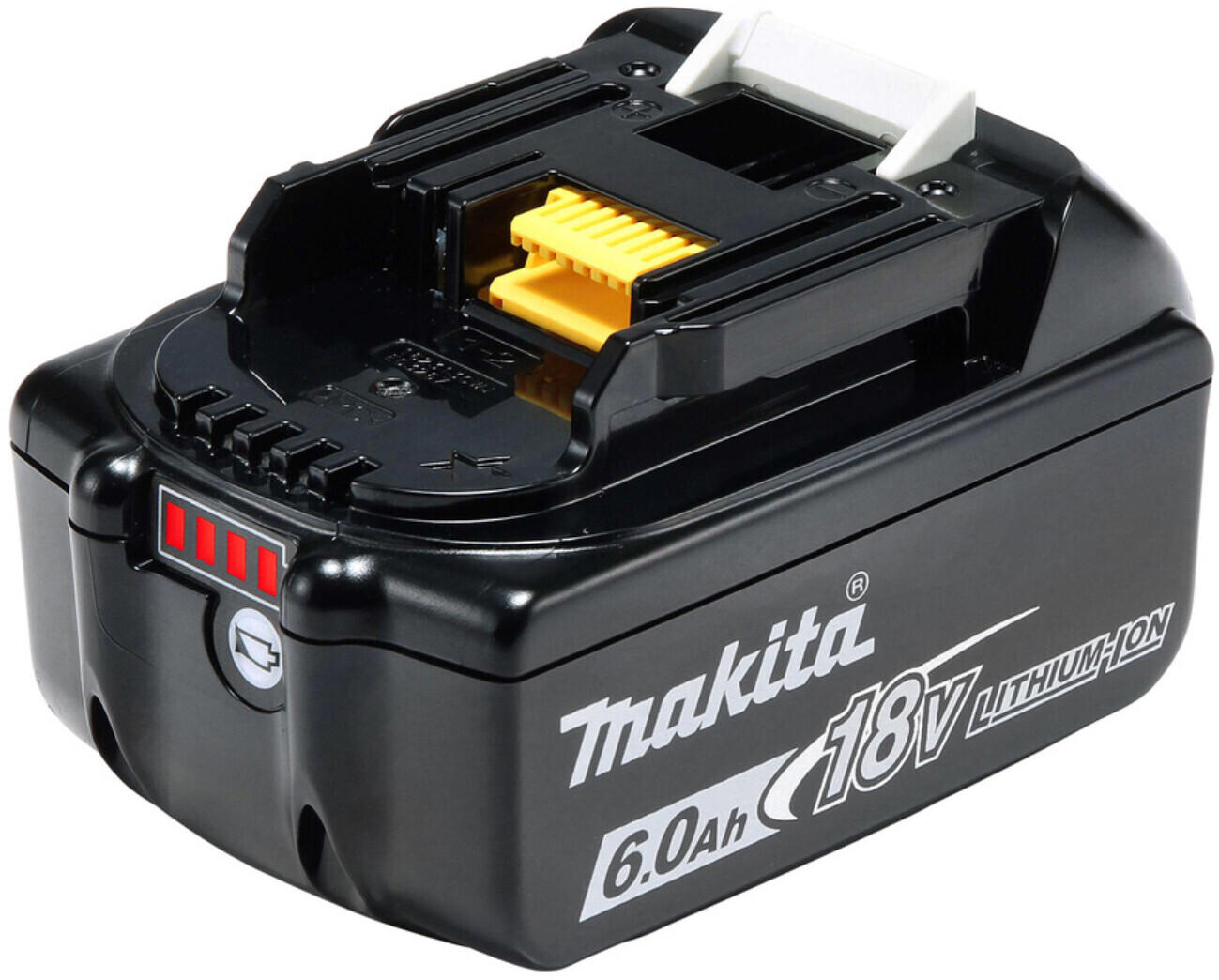
Run-time
A longer run-time is preferred as it allows for uninterrupted work without the need for frequent recharging. Our top picks for power tool batteries with excellent run-times include the 'DEWALT DCB205', which features a capacity of 5 ampere-hours (Ah) and delivers extended run-time for heavy-duty tasks. Another option is the 'Milwaukee 48-11-1852' with a capacity of 5 Ah, providing long battery life to tackle demanding applications. For those seeking even longer run-times, higher-capacity batteries like the 'RIDGID AC840087P' (4 Ah) and the 'Bosch BAT622' (6 Ah) are great choices that deliver extended power for prolonged work sessions. Note, however, that higher-capacity batteries may add weight to the tool.
Charging method (via AC/DC adapter, USB)
There are two common charging methods available: via AC/DC adapter or via USB.
For those looking for a power tool battery charger that charges via AC/DC adapter, the DEWALT DCB107 is an excellent choice. This charger is compatible with 12V MAX and 20V MAX DEWALT Lithium-Ion batteries. It features an AC/DC power input capability of 110-240V, allowing it to be used in various regions. Furthermore, it has a quick charge feature that charges batteries to 80% capacity in just 45 minutes, ensuring minimal downtime during your projects.
If you prefer a power tool battery charger that charges via USB, the M18/M12 Dual Port Charger by Milwaukee is a great option. This charger can simultaneously charge M18 and M12 Milwaukee batteries, offering versatility for users with multiple power tools. It supports both USB-A and USB-C charging ports, allowing you to charge batteries directly from your car, laptop, or power bank. Additionally, it incorporates REDLINK Intelligence, a technology that communicates with the battery to optimize performance and extend overall battery life.
Other power tool battery chargers on the market can be grouped into various segments based on their charging methods. Some chargers support both AC/DC adapter and USB charging, providing users with the freedom to choose the most convenient method for their needs. Examples of such chargers include the Bosch GAL18V-40 and DEWALT DCB119, both of which offer flexible charging options to accommodate various power tool battery types.
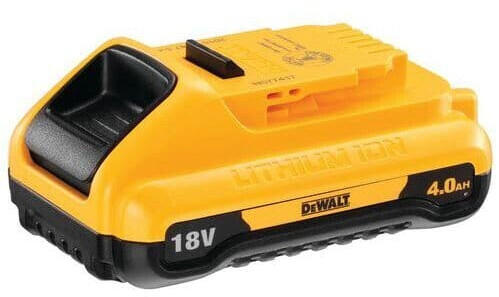
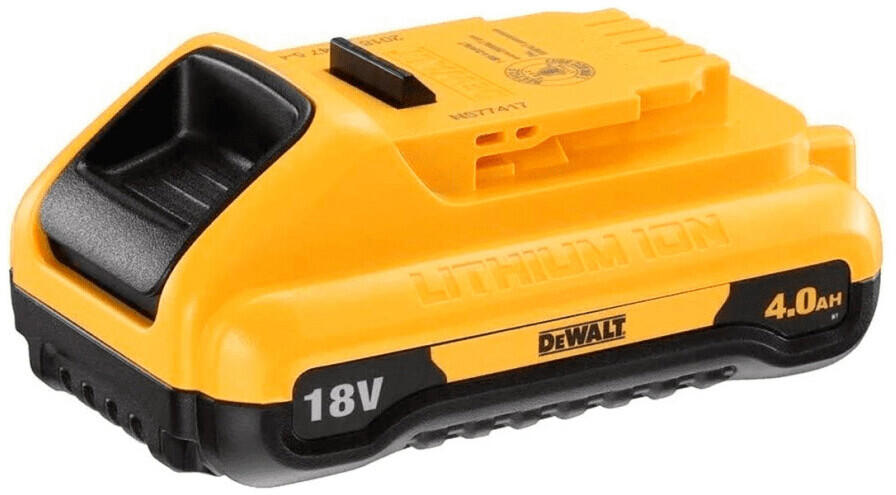
Interchangeability
This refers to the compatibility of the battery with different power tools from the same brand or even multiple brands. Having interchangeable batteries can be incredibly convenient as it allows you to switch batteries between tools, reducing downtime during projects. An excellent example of an interchangeable battery system is the DEWALT 20V MAX XR Lithium-Ion line, which offers compatibility across a wide range of tools such as drills, impact drivers, and circular saws. Another notable option is the Makita LXT Lithium-Ion range, known for its compatibility with over 275 different Makita tools, including cordless drills, planers, and reciprocating saws. Both these product lines provide a versatile battery platform that allows professionals and enthusiasts to expand their tool collection without needing to invest in additional batteries.
Environmental friendliness
Opting for batteries that are designed to be eco-friendly can minimize their impact on the environment. One such example is the DEWALT DCB230C 20V Max Lithium-Ion Battery Pack. This battery pack features advanced lithium-ion technology that guarantees no memory effect and virtually no self-discharge for maximum productivity and less downtime. Additionally, it has a low internal resistance, enabling maximum power delivery and an extended battery life.
Another environmentally-friendly option is the Makita BL1830B-2 18V LXT Lithium-Ion Battery 2-Pack. These batteries are designed with Star Protection Computer Controls to take on the most demanding jobs while delivering efficient power management to conserve energy. They have a built-in LED battery charge level indicator, allowing for better monitoring of the battery's status and preventing over-discharge. Furthermore, these batteries have a rapid optimum charger that communicates with the battery's built-in chip throughout the charging process to optimize battery life.
Power gauge
A power gauge on a battery pack can be incredibly useful as it provides an indication of the remaining battery life, allowing users to monitor their power levels more efficiently. This feature is especially helpful for those working on longer projects or in remote locations where battery replacement may not be convenient.
One product that offers a reliable power gauge is the DEWALT DCB204-2. This 20V MAX XR Lithium-Ion battery pack features a built-in fuel gauge that displays the remaining runtime for optimum planning and efficiency. Another option is the Milwaukee 48-11-1850. This M18 REDLITHIUM XC5.0 Extended Capacity battery pack utilizes a battery fuel gauge to instantly check the remaining power, ensuring uninterrupted workflow.
In addition to these options, several other power tool battery packs in the market also feature power gauges, providing users with a comprehensive overview of their battery status. Some brands that are known for incorporating power gauge technology include Bosch, Makita, and Ryobi, among others.
Backwards compatibility
Backwards compatibility refers to the ability of a battery to work with older models of the same brand or series power tools. This is crucial as it allows you to use your existing tools without having to invest in new ones.
For example, the DEWALT DCB205 20V MAX XR Lithium-Ion Battery is compatible with the entire line of DEWALT 20V MAX power tools, making it a versatile option that can be used across multiple tools. Another excellent choice is the Milwaukee 48-11-1852 M18 REDLITHIUM XC5.0 Battery, which is backward compatible with all M18 tools, thereby providing a seamless transition between old and new equipment. Additionally, the Makita BL1850B-2 18V LXT Lithium-Ion 5.0Ah Battery is designed to be compatible with older Makita 18V tools, ensuring uninterrupted usage while reducing the need for multiple battery models.

Tool compatibility verification (e.g., tool model numbers)
Before purchasing a battery, it is essential to make sure it is compatible with your specific tool. Tool compatibility can be determined using the tool model number. For instance, the DEWALT DCB206-2 is compatible with various DEWALT 20V MAX power tools, ensuring optimal performance across a range of applications.
Other power tool battery options like the Makita BL1850B-2 are specifically designed to fit Makita 18V LXT tools. By verifying the tool model number and finding a compatible battery, you can ensure seamless integration and avoid any compatibility issues during use.
It is important to note that different power tool brands may have specific battery requirements. For example, Milwaukee offers their M18 Redlithium series batteries, such as the Milwaukee 48-11-1860, which work with their M18 Power Tool range. Similarly, the Ryobi P197 is designed for use with Ryobi tools utilizing the One+ system.

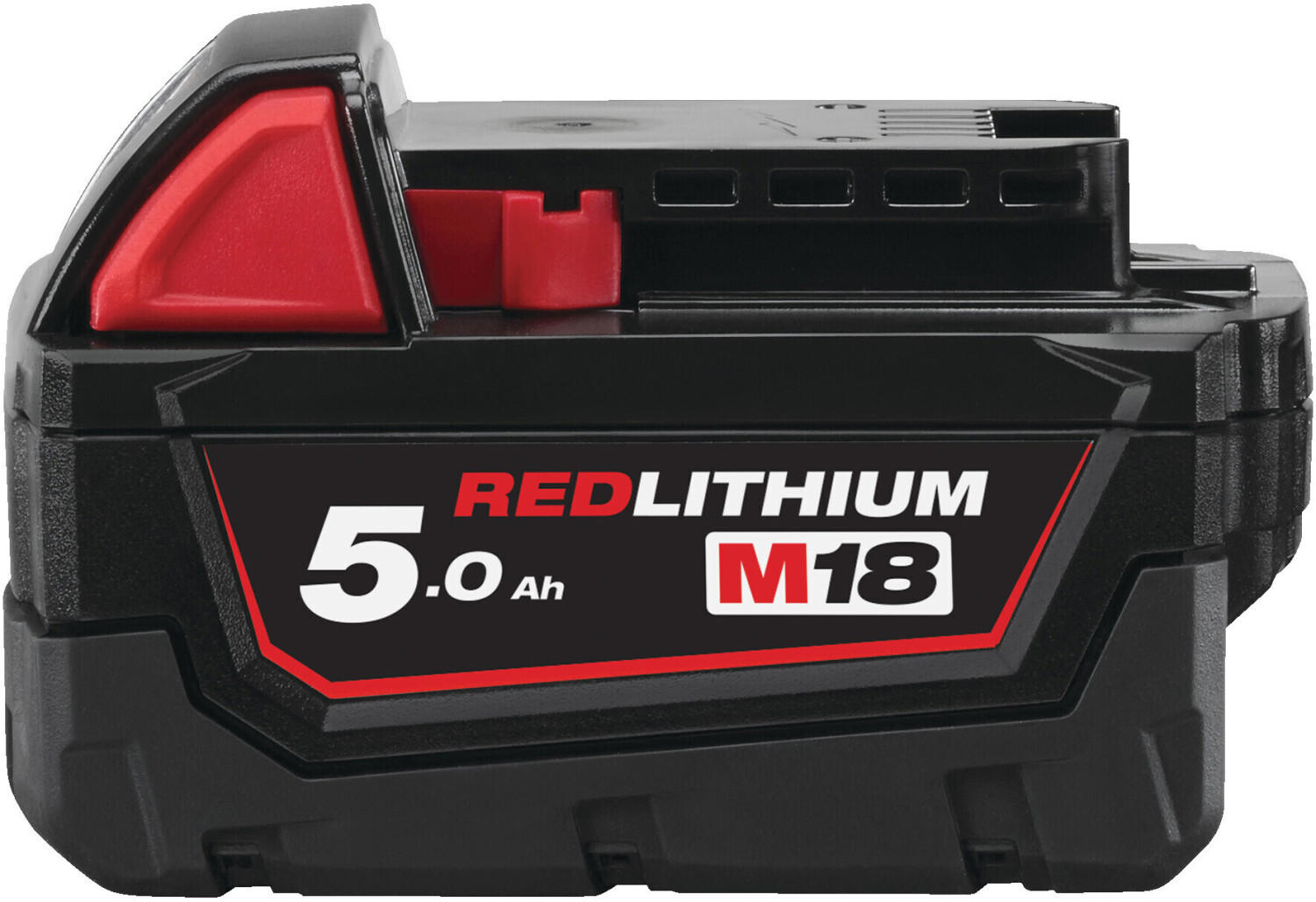
By cross-referencing your tool's model number with compatible power tool battery options from various brands, you can find the right battery that is tailored to your specific tool and its requirements.
Charge retention when not in use
This refers to the ability of the battery to hold its charge even when not in use for extended periods. For example, the DEWALT DCB205-2 20V MAX XR lithium-ion battery boasts a great charge retention rate, with an impressive 80% retention after 90 days of storage. The high capacity Milwaukee M18 REDLITHIUM XC 5.0Ah battery also offers excellent charge retention, maintaining 80% of its power even after 2 years of storage. For those seeking a more budget-friendly option, the Ryobi P197 18V ONE+ lithium-ion battery provides reliable charge retention capability, with a power loss of less than 0.25% per month not in use.
When it comes to power tool batteries, there are different segments to cater to users' specific needs. For users who require long-lasting power, the Makita BL1850B-2 18V LXT lithium-ion battery is an excellent choice, offering not only superior charge retention but also a high capacity of 5.0Ah, ensuring long runtime. Alternatively, users who prioritize lightweight design may opt for the Bosch BAT612 18V lithium-ion battery which provides good charge retention and weighs only 0.85 lbs, ideal for reducing fatigue during extended use. Regardless of individual preferences, there is a power tool battery available that combines great charge retention with other desirable features to suit various needs.
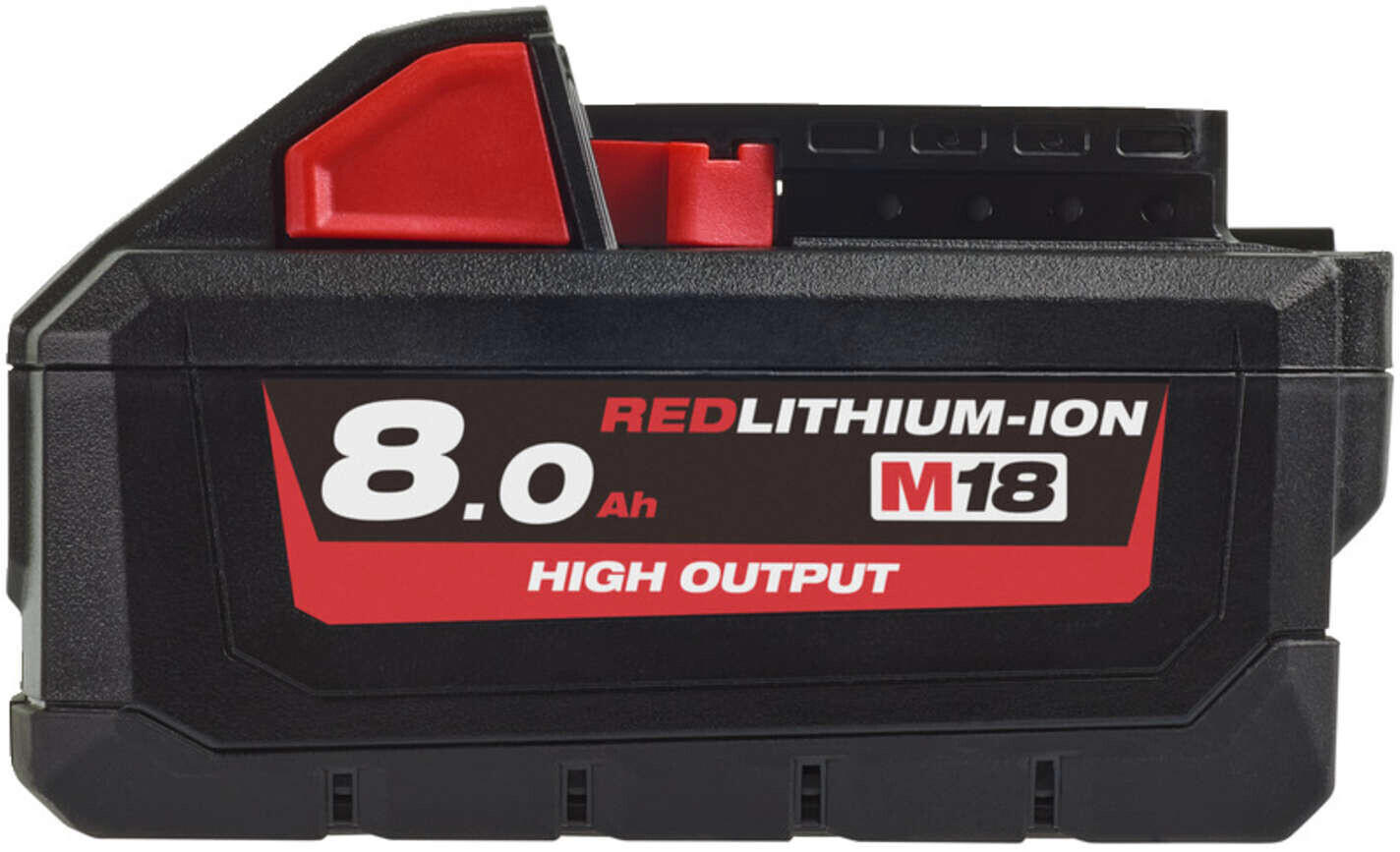
Ergonomics (ease of handling)
Ergonomics is crucial as it ensures more comfortable operation and reduces fatigue during long periods of use. When looking for power tool batteries with excellent ergonomics, it is important to consider their weight, shape, and grip. One example of a battery that excels in ergonomics is the Dewalt DCB606 20V/60V MAX Flexvolt Lithium-ion Battery. This battery is designed with a compact and lightweight construction, weighing only 2.6 lbs., making it easier to handle for extended periods of time. Additionally, it features a comfortable grip surface and a flat base, allowing it to stand upright for convenience during work breaks. Another option to consider is the Makita BL1850B-2 18V Clean Power Battery. These batteries are designed with a lightweight construction, weighing only 1.4 lbs., reducing user fatigue. They also feature an impact-resistant outer case, ensuring durability and a comfortable grip surface for enhanced ergonomics.
Segmenting based on different types of power tools, for those who use cordless drills, the Black+Decker LBXR20 20V Lithium-Ion Battery is a great option with excellent ergonomics. It weighs only 1.2 lbs., making it easy to handle during drilling tasks. For those using reciprocating saws, the Milwaukee 48-11-1852 M18 Redlithium XC5.0 Extended Capacity Battery Pack stands out with its ergonomic design. It weighs just 1.4 lbs. and offers a comfortable grip surface, ensuring optimal maneuverability while cutting through materials.

Safety features
Look for batteries that have built-in protection against short circuits, overloading, and overheating. For example, the Makita BL1840B lithium-ion battery features Overload Protection technology, which prevents the battery from being overloaded, extending its lifespan. Similarly, the DEWALT DCB206-2 battery pack is equipped with an onboard Protection Circuit Module (PCM), safeguarding against short circuits and temperature fluctuations that could potentially damage the battery.
Another important safety feature is the power tool battery's resistance to impacts and vibrations, ensuring durability and reliability in harsh working conditions. Products, such as the Milwaukee 48-11-1862 M18 REDLITHIUM XC High Output Battery, provide enhanced resistance to impact, vibration, and water exposure, thanks to its rugged construction and packaging technology. This makes it an excellent choice for construction sites and other demanding environments.
It is worth mentioning that power tool batteries can generally be categorized into different market segments based on their voltage and capacity. Some notable options include high-capacity batteries like the Ryobi P108, providing extended runtime for prolonged tool use, and compact batteries like the Bosch BAT414, offering smaller size and lighter weight for maximum portability.
Voltage compatibility with power grid
The voltage rating determines whether the battery can work properly with the power outlet and ensures optimal performance of the power tools. In the market, there are various voltage options available, including 18V, 20V, and 36V, among others. For instance, the DEWALT 18V XR Lithium-Ion Battery offers a seamless compatibility with the power grid and delivers reliable power for an extended runtime. Similarly, the Makita 18V LXT Lithium-Ion Battery is another excellent option, providing compatibility with standard power outlets and effectively powering a wide range of power tools. For those requiring higher voltage compatibility, the Milwaukee M18 High-Output HD12.0 Battery Pack with its 36V capacity ensures maximum power and longer runtime.
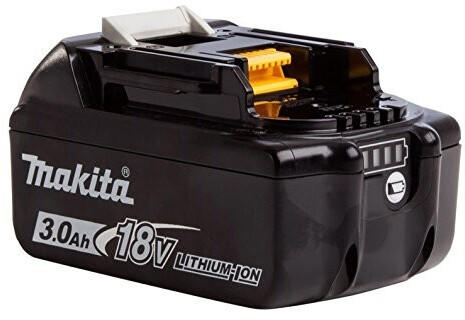

Number of batteries in the set
The number of batteries included can significantly impact the performance and convenience of using power tools. For example, the DEWALT DCB606-2 20V MAX 6.0Ah Lithium Ion Premium Battery, 2-Pack offers the advantage of having two batteries, allowing for continuous usage without interruptions. These high-capacity batteries provide extended runtime and are compatible with multiple DEWALT 20V MAX tools.
Alternatively, if you're looking for a higher number of batteries in the set, the Makita BL1850B2DC2X 18V LXT Lithium-Ion Battery and Dual Port Charger Starter Pack (5.0Ah), 2 Batteries is an excellent choice. This kit includes two Makita 18V LXT Lithium-Ion batteries with a capacity of 5.0Ah each, providing not only ample power but also a spare battery for backup. These batteries are designed for use with a range of Makita 18V power tools and can be charged with the included dual-port charger for enhanced productivity.
In the market, different power tool battery sets come with varying numbers of batteries to suit different needs. Some sets may include a single battery, while others offer two or more batteries for extended use. It's essential to understand your usage requirements and preferences before making a final decision on the number of batteries included in the set.
Depth of discharge (DoD)
This refers to the amount of capacity that has been used from the battery before recharging is necessary. A lower DoD means the battery can be discharged further before needing to be recharged, which extends its runtime. For example, the DEWALT DCB205 lithium-ion battery has a DoD of 80%, allowing it to deliver long-lasting power for prolonged use. Similarly, the Makita BL1850B battery has a DoD of 50%, maximizing its runtime for continuous tasks. A few products in the high DoD category (90% or more) include the Milwaukee M18 REDLITHIUM XC 48-11-1880 battery and Bosch CORE18V GCY42V EC battery pack, which provide excellent runtime for heavy-duty applications. Consider your workload and the need for prolonged use when choosing power tool batteries based on Depth of Discharge (DoD).



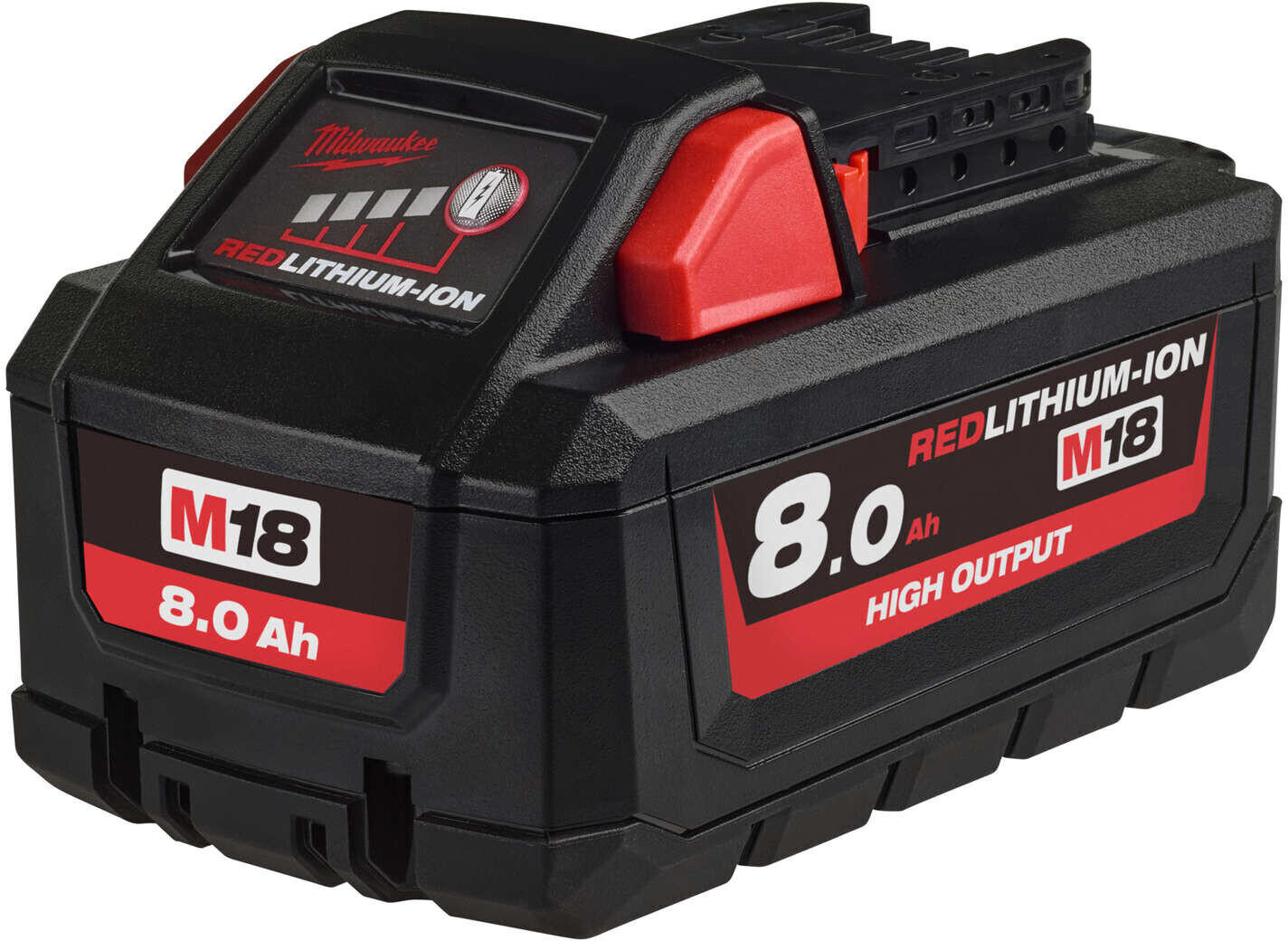
Self-discharge rate
This refers to the rate at which the battery loses its charge when not in use. High-quality power tool batteries usually have a low self-discharge rate, which means they can hold their charge for longer periods of time. This is particularly beneficial for those who use their power tools intermittently or maintain a large collection of batteries. An example of a power tool battery known for its low self-discharge rate is the DEWALT 20V MAX XR Lithium Ion Battery. With an impressive self-discharge rate of less than 1% per month, this battery can retain 90% of its charge even after a year of non-use. Other reliable options with similarly low self-discharge rates include Makita BL1860B 18V LXT Lithium-Ion Battery and Bosch GBA2.0 36V Power Tool Battery.

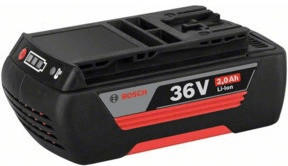
Price
Prices can vary depending on the brand, quality, and capacity of the battery. It is possible to find value-for-money options that offer excellent performance at an affordable price. For those on a tight budget, Black+Decker LBXR20 20V Max Lithium-Ion Battery is a reliable choice. This battery offers a capacity of 1500mAh and provides a good balance between power and cost. For a slightly higher price, the Dewalt DCB205CK 20V Max 5.0Ah Lithium-Ion Battery Kit is a great option. It includes two batteries with a capacity of 5000mAh each, offering longer runtime and improved durability.
Variety of brands
One popular brand is DEWALT, known for its high-quality power tools and batteries. DEWALT offers a range of batteries including their esteemed 20V MAX system, which provides extended runtime and optimized power. Additionally, their FlexVolt batteries are designed to deliver maximum power for demanding applications. The PROs of choosing DEWALT batteries are their durability, long-lasting performance, and compatibility with the extensive range of DEWALT power tools. On the other hand, Ryobi is a more affordable brand that offers a wide selection of batteries for their power tool range. However, the CONs of these batteries are their shorter lifespan and limited compatibility options compared to other high-end brands like DEWALT. Other popular brands worth considering include Makita, Bosch, and Milwaukee.
